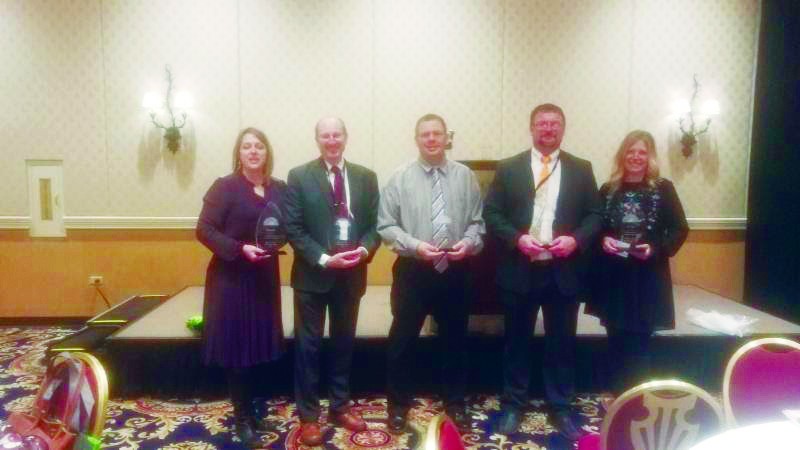MVSD, other S-CAP core schools recognized

MONTE VISTA— Rural districts obviously deal with different issues than schools on the Front Range. High poverty and high minority schools are often unfairly scarred due to standardized test scores that do not accurately reflect the efforts of the district and the success of their students. It is believed there is a better way to give credit to schools.
Monte Vista Superintendent Bob Webb and four other core districts from around the state have spearheaded the Student-Centered Accountability Program (S-CAP) to show accountability and growth in a way that is more fair to rural districts and shows the hard work educators do in molding tomorrow’s leaders and hard-working citizens.
“We’ve been involved for four years now. The intention was to have a way to show parents and staff and even the community at large— meaning the state department and others— all of the other items that we accomplish other than just tests. These test scores have always been a problem for high poverty and high minority schools like are found in most of the San Luis Valley,” said Webb.
To combat this issue the superintendents from Monte Vista, Buena Vista, Kit Carson, La Veta and Buffalo came together to develop a method to show a comprehensive view of what schools provide. “We have to provide safety measures, ensure resources and dollars are focused on the right things. We don’t get credit for these things in the state’s rating system,” stated Webb.
That doesn’t mean that test scores or the state’s systems are thrown out. “We just felt there was more that parents and the community could see that goes into school improvement,” he said.
Some of the things that the school works tirelessly on are having a good school atmosphere, bully prevention and intervention, and preparing students to go into their desired future after graduation. Not every student wants to go to a traditional four-year university, but that should not discredit students that enter the military, trade schools or straight to the workforce. The S-CAP model works to show these success stories as well.
It also helps to show growth from year to year and other high achievements that are not measured by state standardized test scores. “Look at the success of our middle school history fair students. That’s not something that’s measured by the state. Science fair is another one. We have 55 international science fair participants. Those things don’t get reported in the state system. It’s a problem and it’s inadequate,” said Webb.
The S-CAP group has presented at state and national forums with great success and reception. Webb and the other superintendents were awarded the Rural Alliance Exceptional Leadership Award for their innovative efforts.
It is promoting an accountability system that is timely, meaningful, considers the whole child and engages community stakeholders in a continuous cycle of improvement and innovation supported by a network of peers. Their work is supported by the state board of education and is critical in advancing legislative efforts to move away from high stakes testing.
The group has recently been approached by groups out of Washington and Wisconsin that would like to learn more and how they can help implement the program. “The S-CAP system allows us to share all of those other factors. We can say this is what our community wants, this is what our families want. Are we providing them an education where they can be successful after school? Yes.”
To learn more about the Student-Centered Accountability Program and see results, please visit scapmvsd.weebly.com.=



